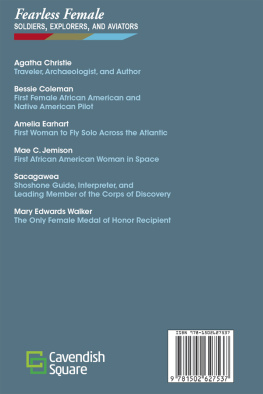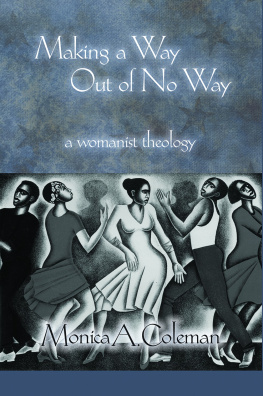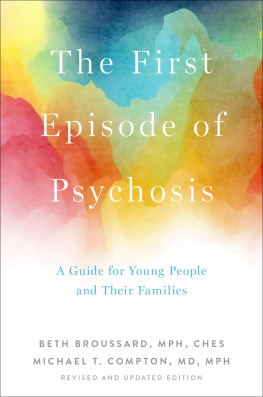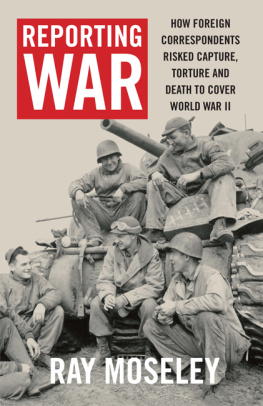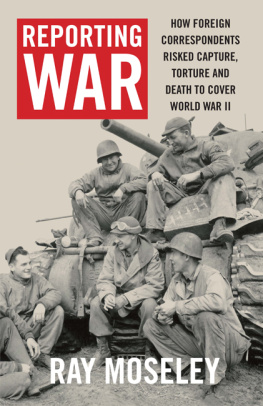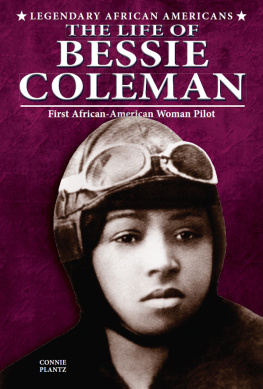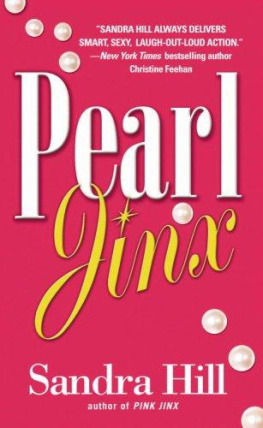African American
Foreign
Correspondents
Media and Public Affairs
Robert Mann, SERIES EDITOR
African American
Foreign
Correspondents
[A HISTORY]
Jinx Coleman Broussard
Published by Louisiana State University Press
Copyright 2013 by Louisiana State University Press
All rights reserved
Manufactured in the United States of America
FIRST PRINTING
DESIGNER: Mandy McDonald Scallan
TYPEFACE: Whitman
PRINTER: McNaughton & Gunn, Inc.
BINDER: Dekker Bookbinding
Library of Congress Cataloging-in-Publication Data
Broussard, Jinx C. (Jinx Coleman), 1949
African American foreign correspondents : a history / Jinx Coleman Broussard.
pages cm. (Media and public affairs)
Includes bibliographical references and index.
ISBN 978-0-8071-5054-2 (cloth : alk. paper) ISBN 978-0-8071-5055-9 (pdf) ISBN 978-0-8071-5056-6 (epub) ISBN 978-0-8071-5057-3 (mobi) 1. African American pressHistory. 2. African American journalistsHistory. 3. Foreign newsUnited StatesHistory. 4. Foreign correspondentsUnited StatesHistory. I. Title.
PN4882.5.B595 2013
070.92dc23
2012042691
The paper in this book meets the guidelines for permanence and durability of the Committee on Production Guidelines for Book Longevity of the Council on Library Resources.

This book is dedicated to
my husband, Robert Broussard Sr.,
who is my number one cheerleader
my children and siblings, who kept me grounded
and my late parents, whose dream I am living
Contents
Acknowledgments
This book began as a result of a conversation that John Jack Maxwell Hamilton and I had when he was working on his history of American foreign reporting. Jack, who was dean of the Manship School of Mass Communication at the time, asked if I had ever heard of John Rover Jordan, an African American foreign war correspondent for the Norfolk Journal and Guide. Of course I had not, but my research on Jordan led to the discovery not only of black war correspondents, but numerous others who reported from all over the world. Jack and I wrote and published an article in American Journalism on some who wrote from abroad during World War II. Following that, he suggested I write what has become this book. My thanks, therefore, goes first to him for starting me on this journey. I also thank the Manship School and the Reilly Center for Media and Public Affairs at Louisiana State University for resources and other support that enabled me to travel to conduct research and present my findings.
I am indebted to the graduate research assistants who spent numerous hours looking at microfilm, finding material about unheard of correspondents, locating and digesting news articles from abroad, and providing valuable input. A special thanks goes to Skye Chance Cooley, Benjamin Rex LaPoe, Cristina Mislan, and Masudul Biswas, who wrote articles with me based on our research, as well as Erica Taylor and Lyle Perkins. The Chicago Defender gave me access to the files of its foreign correspondents, and the archivists at The Afro-American and several libraries and research centers directed me to sources and assisted me after my visits. They include Michael Kluge and Beverly Cook of the Vivian G. Harsh Research Collection of Afro-American History and Literature of the Chicago Public Library, and the staff at the Moorland-Spingarn Research Center at Howard University, the Peabody Collection at Hampton University, Morgan State University, the Chicago Historical Museum, and the Schomburg Center for Research in Black Culture of the New York Public Library. I owe my gratitude to them and to Raymond Boone, a former editor and foreign correspondent for The Afro-American who now publishes the Richmond Free Press. Without his assistance, I would never have heard of or met William Worthy Jr., nor would I have learned so much about how and why the black press engaged in foreign news gathering.
Finally, I thank my family members for their support and cheerleading, and for trying to provide a sense of balance as I devoted years to this book.
African American
Foreign
Correspondents
Introduction
Mary Ann Shadd Cary was a self-assured and fiercely independent twenty-eight-year-old when she headed north to Canada almost one year to the day after passage of the Compromise of 1850, which strengthened the Fugitive Slave Act. The measure, aimed at minimizing regional strife as the United States expanded westward, appeased slave owners by allowing armed pursuit and capture of anyone suspected of being a runaway slave. It also penalized federal officials who did not aid in the process. Although Shadd Cary had been born to prominent free people of color in Delaware, she knew she was not safe from a rule that made no distinction between free blacks and slaves.
Shadd Cary left behind the work she had been doing as a teacher and a freelance journalist for the black press. Her decision could not have been easy, for she was committed to building her community and working with the press to advance her people. But she could not abide by the slave law she called odious and the danger it posed. She left her family behind and headed for a place that guaranteed freedom and opportunity for blacks. Not long after settling in her new homeland, Shadd Cary wrote a persuasive pamphlet aimed at spurring black emigration to Canada. Soon after, she became the first black woman to edit a North American newspaper, the Provincial Freeman. The weekly circulated in Canada and the United States.
What makes Shadd Cary distinctive is the fact that she became a foreign correspondent and helped define a role that was still very much in formation at the time. Her work is symbolic of the largely unrecognized genre of African American foreign correspondence, which has been treated as an anomaly. Traditionally, foreign correspondents have been portrayed as suave, daring menand a few tough, aggressive womenwho followed the story wherever it took them. Black writers and the publications for which they wrote have not fit into the picture. Nevertheless, their output testifies to the longevity and vast amount of black global reporting. Like their white counterparts, they represent the men and women who saw the world firsthand, related their experiences, framed issues on the world stage, and created context and meaning for people of color and other audiences worldwide.
This book is about people like Shadd Cary and the periodicals that invested their human and financial resources to tell the truth or, as they often wrote, to tell the other side of the story. Shadd Cary and Frederick Douglass, both abolitionists, became accidental foreign correspondents and gave birth to the genre of international news gathering by blacks. Although this work primarily addresses African American foreign correspondence in black print publications, where it was most prolific, it also gives attention to writings from abroad by blacks who worked for mainstream publications.
Foreign correspondence can be letters, official reports, news, and other information gathered abroad for dissemination at home; it is intertwined with the broad expanse of history. Foreign news gathering by U.S. media dates to colonial times, when accounts of news from England were rewritten for dissemination in the new land. As the genre evolved, men and women often risked their lives to provide firsthand accounts of wars, insight into world personalities, and commentary on events.
Early international news gatherers were quasi correspondents, untrained in the profession, who worked in other primary occupations while reporting. They were gatekeepers who determined what news and information from abroad gained a place on the public agenda. These prestigious reporters often made their own assignments, gathering, presenting, and interpreting social, economic, and political issues and events abroad for audiences at home. The experiences of Americans living or traveling abroad provided the human-interest aspect of foreign reporting.



